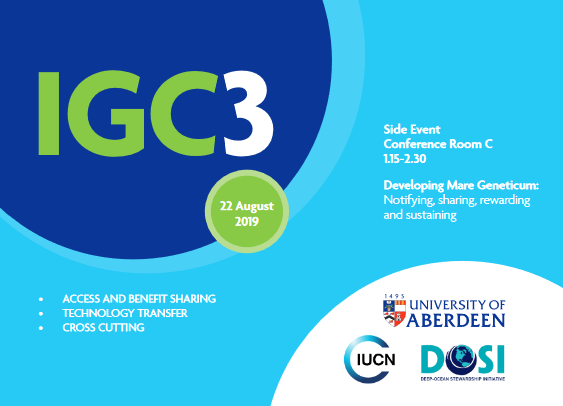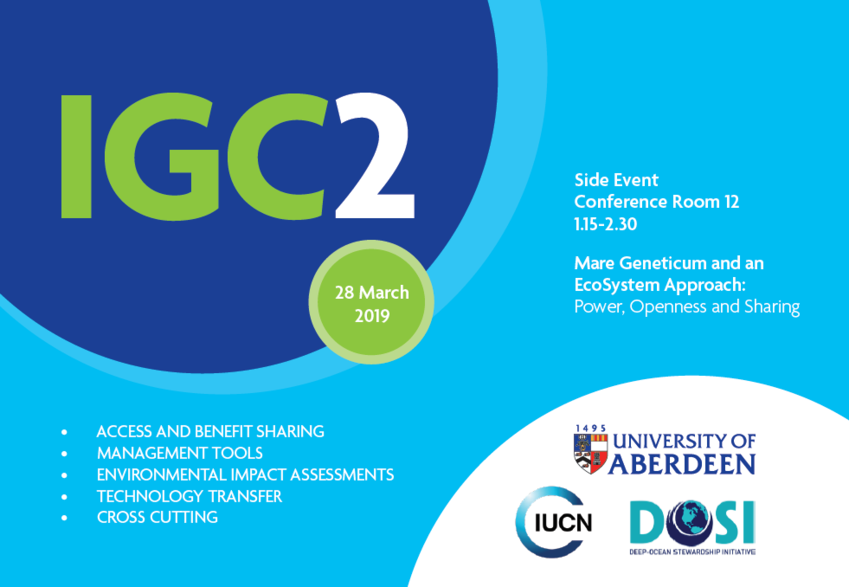The international community is currently in the process of negotiating a new international legally-binding instrument under the United Nations Convention on Laws of the Sea to regulate marine biodiversity beyond national jurisdiction.
Launched by the UN General Assembly in 2004, the purpose of the “biodiversity beyond national jurisdiction” (BBNJ) process was to assess the status of conservation and sustainable use of marine biodiversity in areas beyond national jurisdiction and to investigate the potential need for further international cooperation.
- Overview
-
The BBNJ process led the UN General Assembly to launch the development of the aforementioned instrument in 2015, establishing a Preparatory Committee (PrepCom) for the purpose of providing recommendations on the elaboration of a draft text, which were delivered in July 2017. The PrepCom addressed the “the conservation and sustainable use of marine biodiversity in areas beyond national jurisdiction, in particular, together and as a whole, marine genetic resources, including questions on the sharing of benefits, measures such as area-based management tools, including marine protected areas, environmental impact assessments and capacity building and the transfer of marine technology”.
The BBNJ process is trying to govern and regulate biodiversity, without impeding access for scientific research on marine genetic resources in areas beyond national jurisdiction and for the sharing of benefits arising from their utilisation. This enhanced access to marine genetic resources can of course not be regarded independently from the overarching objectives of sustainable use and conservation of marine biodiversity in areas beyond national jurisdiction. The UN BBNJ Intergovernmental Conference , during which draft text of the new instrument will be negotiated, started on 4 September 2018.
- Mare Geneticum concept
-
The 'Mare Geneticum' concept developed by the EU FP7 PharmaSea project was presented at the UN BBNJ PrepCom to allow them to generate evidence-based policy for incorporation into the new United Nations Convention on Laws of the Sea instrument on biodiversity in areas beyond national jurisdiction. This concept provided building blocks towards a pragmatic solution to access and benefit sharing for marine genetic resources in areas beyond national jurisdiction based on current scientific best practice. This proposal considers the needs of the marine scientific research community and will attract the private sector into studying marine genetic resources for potential commercial applications.
This website will consider marine genetic resources in the UN BBNJ process to begin to work towards a pragmatic solution. This approach consists of three main elements:
- The 'Mare Geneticum ' building blocks show how a regime built on good scientific practice and prior notification could work.
- Using inclusive innovation may allow all parties to benefit from BBNJ. This includes aspects of open access linked to capacity building, technology transfer and benefit sharing.
- Showing that these potential approaches are consistent with established principles of international law, and provisions of UNCLOS applicable to the Area and the High Seas.
- Timeline
-
Timeline

“A Workshop for some country delegates, some representatives of civil society and industry experts and some academics regarding marine biodiversity beyond national jurisdiction was held at the Royal Society of Edinburgh in January 2020.
This informal event aimed to facilitate an open, creative and practical dialogue regarding some of the issues involved in the actual BBNJ negotiations. The goal was to explore the scope of opinions that exist, discuss the reasons underpinning differing views, and consider areas of possible convergence that could be built upon in the ongoing BBNJ negotiations, as well as areas of divergence.
Reflecting the evolving and diverse nature of the ongoing BBNJ negotiations, the main output of the workshop proved to be deep and informed debate, mutual learning and exploration of possibilities. A Workshop report is provided in the hope that it would be of assistance to all involved in the formal process.
IGC3 Side Event 22 August 2019

Colleagues from Law and Chemistry (Abbe Brown and Marcel Jaspars) worked again with the International Union for the Conservation of Nature and the Deep Ocean Stewardship Initiative at the third Intergovernmental Conference (IGC3) of the UN Convention on the Law of the Sea on the conservation and sustainable use of marine biological diversity of areas beyond national jurisdiction https://www.un.org/bbnj/ .
Details of the present draft of the treaty, with commentary by IUCN members including by Jaspars and Brown can be found here .
Our side event explored how to most effectively bring about a pragmatic solution to access and benefit sharing, including regarding notification of cruises, sharing of information and approaches to physical genetic resources and digital sequence information, while also respecting sustainability and engaging appropriately with IP rights and rewarding commercial activities.
As hoped for, we had constructive and proactive discussions and explored and developed new and established ideas. It is hoped that this will contribute to present and future approaches to the negotiations towards delivering the international agreement. For more details see IGC3 Postcard and Side Event Application BBNJ IGC 3.
- Professor Abbe E. L. Brown: Developing Mare Geneticum Rewarding and sustaining?
- Professor Marcel Jaspars: Incorporating Scientific Practices into the BBNJ ILBI
- Professor Marcel Jaspars: Marine Genetic Resources: from Sampling to Commercialisation
- Dr. Judith Gobin: Marine Genetic Resources and Benefit sharing
- Dr Muriel Rabone: Derivations on a deep-blue theme: disentangling definitions & concepts for MGR in the draft treaty text
This event builds on:

(b) a previous successful side event held at IGC2 in March 2019. Material from this follows:
“Mare Geneticum and an EcoSystem Approach: Power, Openness and Sharing”
Speaker 1: Professor Marcel Jaspars, University of Aberdeen, UK
Title 1: The Biodiscovery Pipeline
Speaker 2: Dr Muriel Rabone, Natural History Museum, UK
Title 2: Science Best Practice
Speaker 3: Dr Thomas Vanagt, ABS-int, Belgium
Title 3: Access and Benefit Sharing of Marine Genetic Resources
Speaker 4: Professor Abbe Brown, University of Aberdeen, UK
Title 4: Mare Geneticum and an Ecosystem Approach - Power, Openness, and Sharing
For background information and webinars, see https://www.abdn.ac.uk/ncs/departments/chemistry/bbnj/events/14578/
